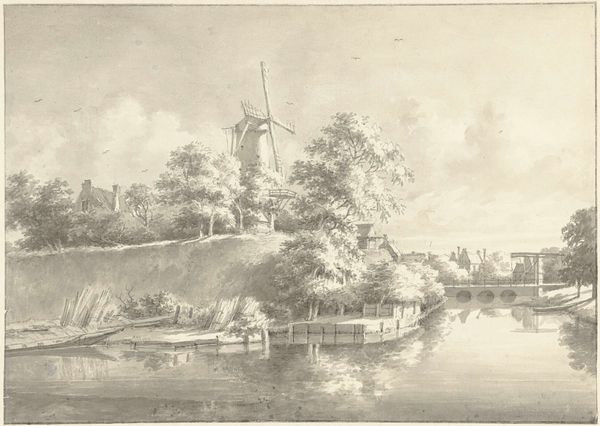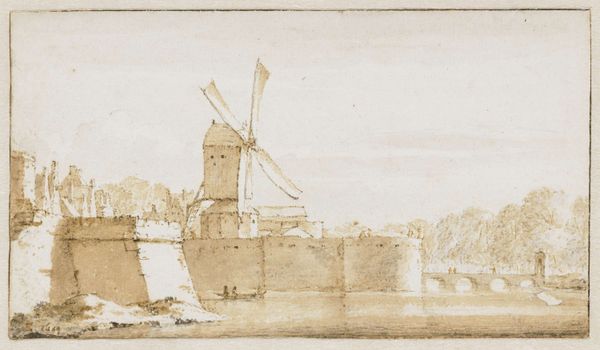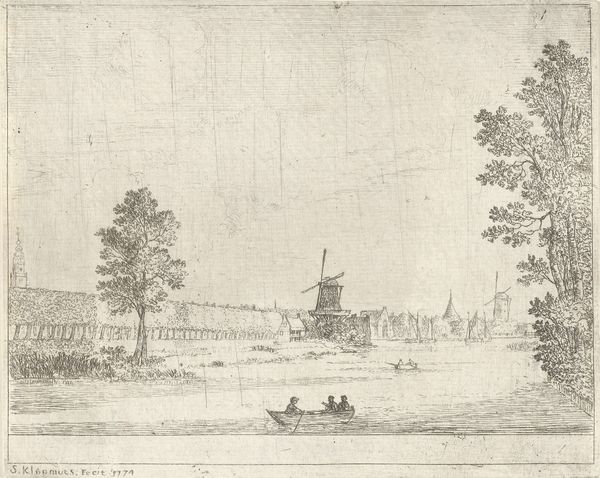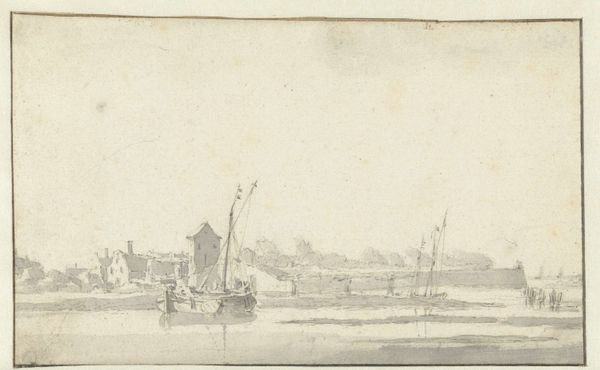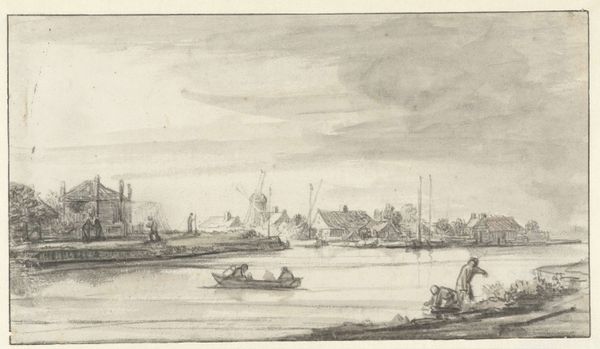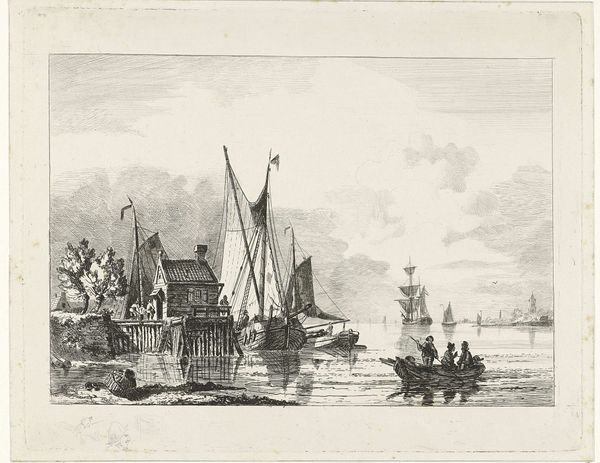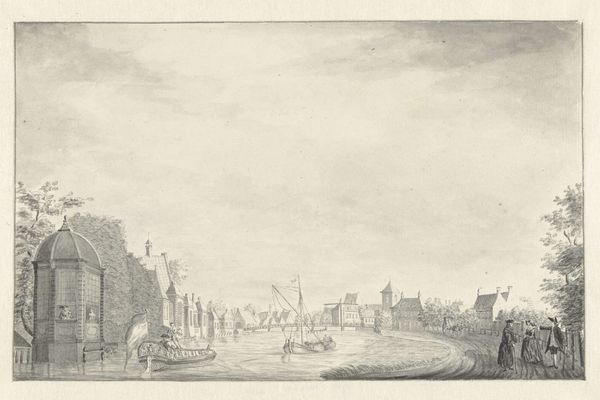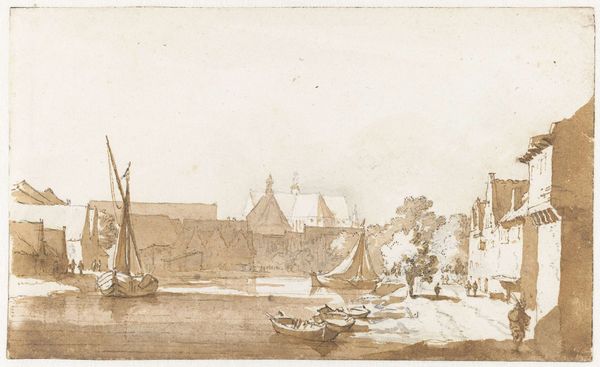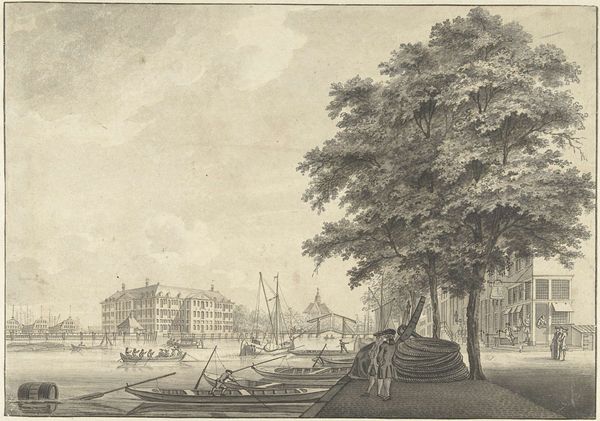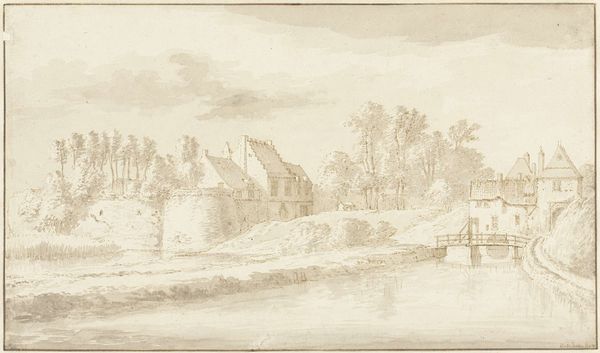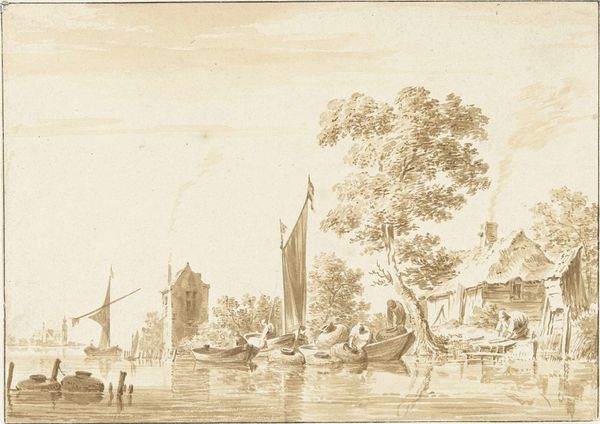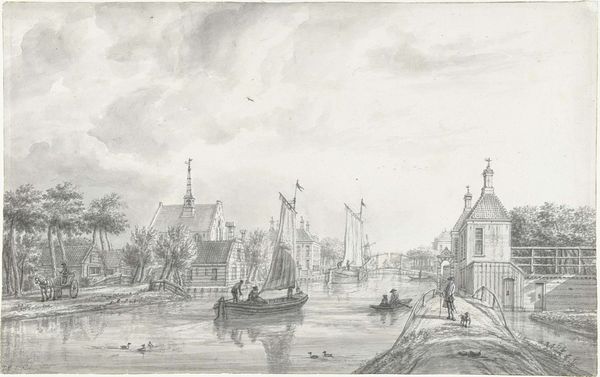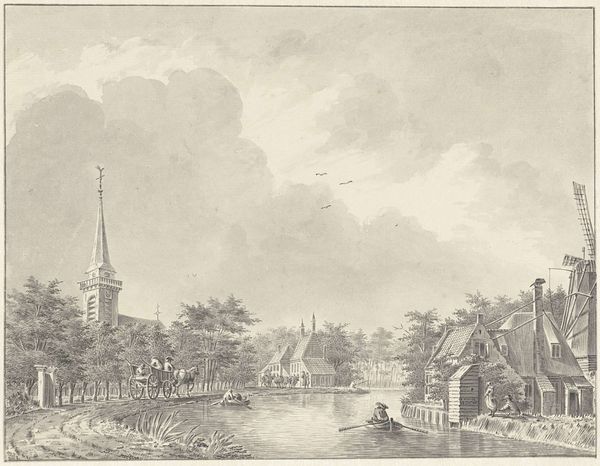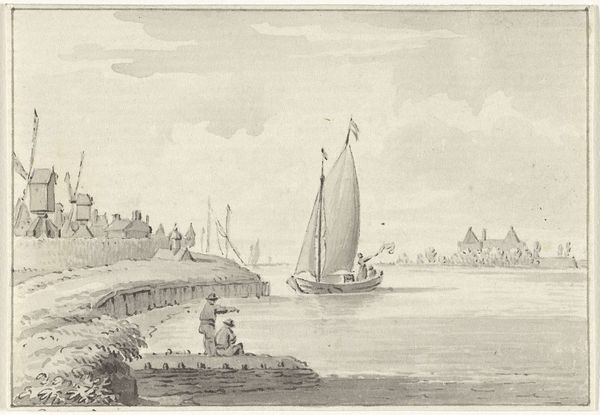
drawing, paper, ink
#
drawing
#
dutch-golden-age
#
landscape
#
paper
#
ink
#
cityscape
Dimensions: height 205 mm, width 299 mm
Copyright: Rijks Museum: Open Domain
Dirk Verrijk made this drawing of the Weteringspoort in Amsterdam with pen in gray ink and brush in gray wash. The drawing reflects Dutch society's relationship with its landscape and its self-fashioning through the built environment. In the 18th century, the Netherlands was a republic, an anomaly in monarchical Europe. The drawing’s depiction of the city gate, fortifications, canals and windmills speaks to the commercial, maritime, and technological prowess of the Dutch. It speaks also to the decentralised nature of Dutch society where the function of power was distributed across a network of local elites. The fortifications are there to protect that trade, but also to declare autonomy. Likewise, the windmills weren’t simply functional, they were emblems of a culture that reclaimed the very land on which it stood. An art historian can use city records, maps, and economic data to understand the significance of these structures. Art helps us understand how the Dutch saw themselves, and how they wished to be seen.
Comments
No comments
Be the first to comment and join the conversation on the ultimate creative platform.
